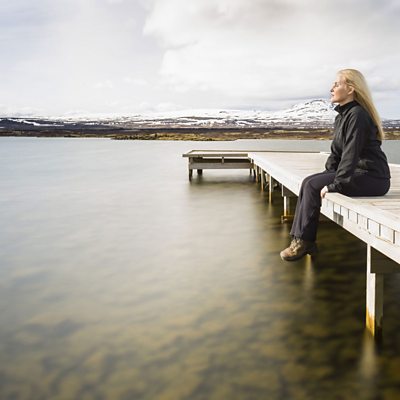Episode details

Available for over a year
I’ve been thinking about the power of human stories after hearing about the newly-launched Universal Turing Machine. It’s an innovative collective writing project, which celebrates what it means to be human as opposed to a machine. Created by novelist Richard Beard, the project started with him telling stories of his own life in the form of a 64-square chess-board-style grid, each digital square revealing a 1,000-word mini memoir of that year in his life. And he’s inviting others to do the same. Because for Beard, if you can write your memoir, you are passing the Turing test. “You are showing that you’re human through the life that you’ve lived, through the memories that you have,” he says. Beard hopes the result will be a public archive of lived experience – its highs and its lows, its chaos, catastrophe and joys. For me, the project highlights the very human realities of choice, story and memory in a world of automation. Remembering the stories of our lives is part of what it is to be human. Sometimes I find myself running through my brain’s stored memories to relive moments from my past: cradling my babies when they were small, dancing with dear friends; falling in love. Human stories, however, are not perfect. Although painful, I recall too those moments in which I’ve failed or been rejected; I can be transported back in my mind to life’s hardest moments. Part of the point of the Universal Turing Machine project is the encouragement to detail the honest realities and imperfections of being a person rather than a machine programmed to get things right – no typos and no failures. One of the dominant narratives of our age, however, seems to be the strive towards self-optimisation: ever-increasing productivity, life hacks, fitness trackers and supplements; the quest for eternal youth; as if a good life is one that experiences no physical vulnerabilities, hardship or suffering. Stories give shape to our identities, and the stories that make up our lives are not just individual, but collective, too. What are the stories we tell about ourselves as a family, as a community, as a nation? They tell us not just what happened, but who we are. For me, part of the beauty of the Christian story is its texture. Just like any human life, it is neither all victory, nor all tragedy. The Psalms, for example, detail the highs and lows of human experience: depression, wonder, anger, joy. The story of Christ’s death doesn’t shy away from suffering, either. Part of the Christian’s hope is that even in the suffering, hope can be found. “God’s power is made perfect in weakness,” in the words of St Paul in second Corinthians. In an age of machine-like perfection, maybe we can all find a bit of hope in our very imperfect – human - stories.
Programme Website